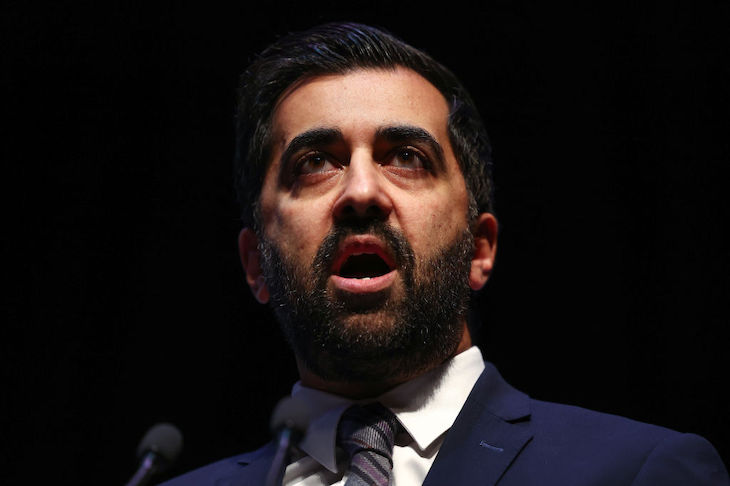The Cass Review may prove to be a tipping point in radical gender ideology’s march through mainstream politics, institutions and civil society. It certainly appears to spell the end of routinely sending children who express confusion about their bodies or their identities down the transition path. The political responses to the report, especially from those who were until recently fully signed on to this ideology, suggest that under what remains of this government and the next Labour government there will be a more cautious approach.
Few who enabled this barbarism – we are talking, after all, about chemically coshing adolescents to suppress puberty – will pay any kind of price for their actions, least of all those in political or public life who were as eager to participate in this outrage as they were to decry those who spoke out against it. Too many people in positions of power have a case to answer and so it will generally be agreed that moving on is best all round.
We are nowhere near that point in Scotland. The Cass review only covers NHS England. NHS Scotland, which is fully devolved to the Scottish parliament, has its own policies and protocols. It is undergoing its own review of gender health services, both adult and child, and a report is expected before summer. While NHS England recently announced an end to prescribing puberty blockers to children as a matter of routine clinical practice, there is no similar policy in place in NHS Scotland. The Sandyford Clinic, Scotland’s only gender clinic for children, has a waiting list of 1,100.
This creates an obvious tension. An expert report says that gender medicine is ‘built on shaky foundations’, ‘an area of remarkably weak evidence’, and that there is ‘no evidence that puberty blockers buy time to think’ and ‘concern that they may change the trajectory of psychosexual and gender identity development’. If there is insufficient evidence for these treatments in England, the same must be true north of the border. Do we suppose that children’s bodies respond differently to hormone drugs once they cross the Tweed? Or that NHS Scotland’s policies are informed by a treasure trove of evidence unavailable to Cass and everyone else?
The Scottish government says it will review Cass’s findings. The difficulty is politics. The only ethical way forward, medically and as a matter of public policy, is to implement the review’s recommendations and follow NHS England’s new rules on puberty blockers. First do no harm. But where the UK government has long been weak and cowardly on these matters, either sharing elite contempt for ‘culture war’ issues or simply fearing the prospect of having to take a stand on something, the Scottish government is much further down the gender rabbit hole.
Under Nicola Sturgeon and now Humza Yousaf, the Scottish Government fully embraced gender identity ideology. Its Gender Recognition Reform Bill, blocked by the UK government, would have allowed anyone aged 16 or older to change their legal sex by assertion and without the involvement of medical experts. It issued guidance for its Gender Representation on Public Boards Act allowing men who identify as women to count as women for equal representation purposes.
Its Hate Crime Act created an offence of ‘stirring up hatred’ against ‘transgender identity’, which it defines to include men who cross-dress as women. (It remains legal to stir up hatred against actual women.) Sturgeon’s final weeks in office were dominated by the initial placement in a women’s prison of a double rapist who called himself Isla Bryson.
Not only has the leadership of the SNP tethered itself to gender ideology, its coalition partners in the Scottish Greens seem to consider it their philosophical lodestar. The Greens have already said they will ‘oppose any moves to increase the age of accessing gender affirming care to 25’, an apparent reference to Cass’s recommendation of ‘a follow-through service’ for 17-to-25-year-olds.
Some of the party’s MSPs have gone further, with Ross Greer reposting a post on X that described the report as ‘a straight up transphobic and conservative document’. As an indication of how deeply the Scottish Greens are invested in gender ideology, their equalities spokeswoman Maggie Chapman told an interviewer last year that it was worth ‘exploring’ whether 8-year-olds should be allowed to change their legal gender.
This leaves the Scottish government in an invidious position. With the growth in children and adolescents reporting gender dysphoria, there are more and more young people at risk of coming into contact with NHS Scotland’s poorly evidenced and potentially harmful policies. The Cass Review will prompt at least some parents in Scotland to rethink the ‘gender-affirming’ path relentlessly urged upon them. These parents are going to have concerns and they’re going to want answers. The question is whether NHS Scotland can back away from ideologically-informed gender medicine without incurring the wrath of the ideologues. Humza Yousaf will be under pressure to hold the line not only from within his own party but from the Green MSPs who give his government its majority at Holyrood.
It should be a case of following the evidence but with any postmodernist ideology following the evidence is politically suspect. Until the Scottish government finds a way to square evidence, medical ethics and clinical good practice with political doctrine, confused children and young people in Scotland are going to be less protected than their counterparts south of the border.








Comments